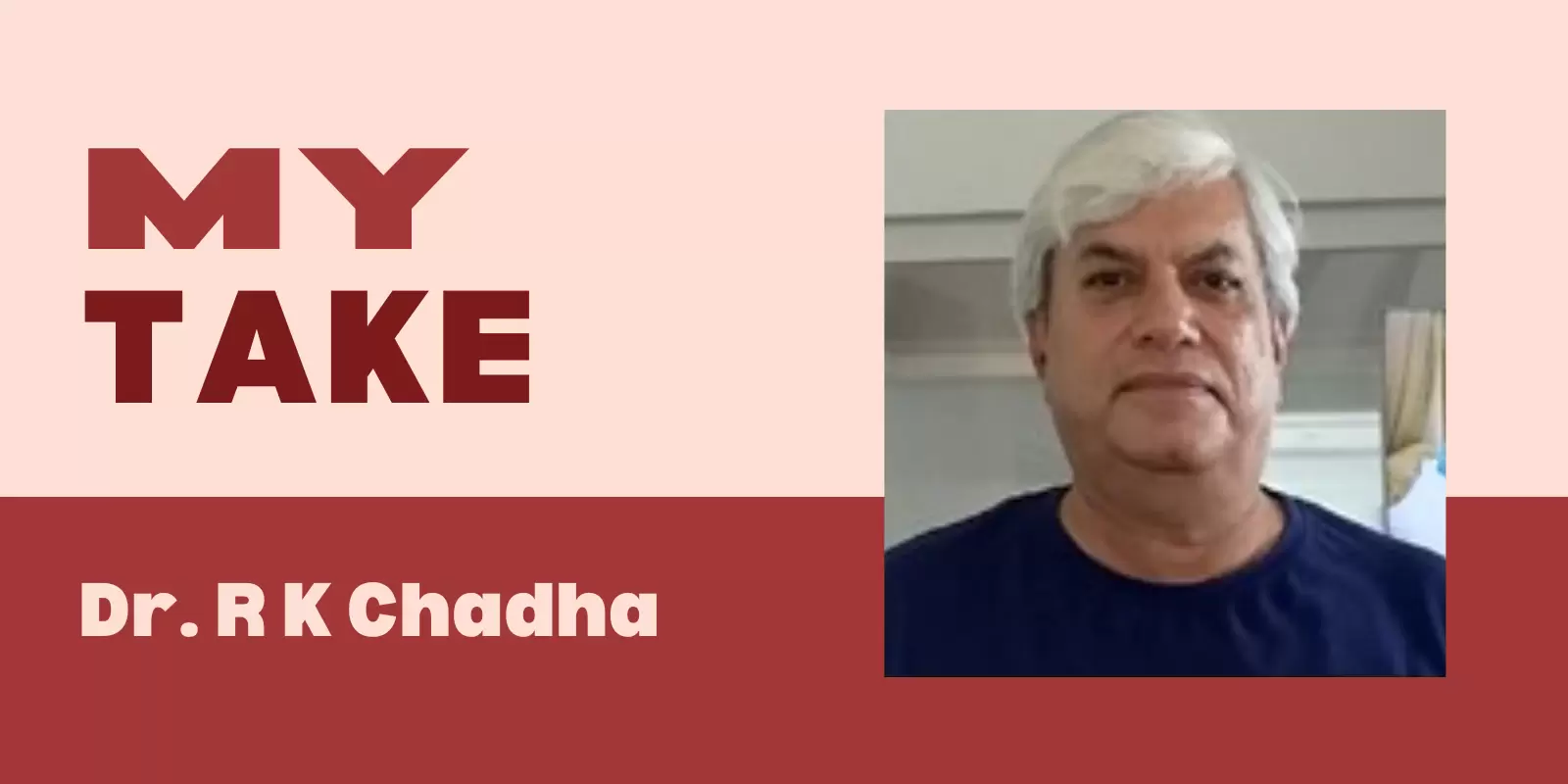Dr. R K Chadha
The Central Government employees pay their homage to the former Prime Minister of India, Dr. Manmohan Singh, who passed away on 26 December 2024 at the ripe age of 92 in New Delhi. We all owe him for bringing monumental changes in the Sixth Pay Commission that transformed the lives of employees, including scientists and academicians, when their income was brought at par with counterparts in other private sectors.
The last decade of the 20th century saw worldwide, unprecedented growth in the Information Technology (IT) and telecommunications sectors that shifted the focus of our education towards computer science and engineering. However, in the initial stages, the demand for IT graduates in India was not very high as the private IT industry grew slowly but steadily. As a result, many talented IT students left for more rewarding careers abroad with a much higher pay package than their Indian counterparts in government jobs that even exceeded the employees serving at higher levels. There was a boom in internet startups and the stock market showed promise as investors avidly traded in dot-com stocks. This was the time when people talked, and the skeptics warned about the “infamous brain drain” which I consider as the “export of surplus brains” in our country to other countries for a fee that finally helps our economy.
The beginning of the third millennium saw the dot-com bubble, also known as the Internet bubble, burst that proved to be fatal because of its widespread impact in trillions of dollars in market value that got wiped out as stock prices of several multinational companies plummeted leading to bankruptcies, job losses, inflationary pressure and overall economic activity. In response to the rising inflation, the US raised interest rates but that increased the borrowing costs of these companies, several of them went out of business, leading to layoffs and job losses in the tech sector. The contraction in household wealth undermined consumer confidence and spending leading to the beginning of the recession.

This was the time when the stellar Finance Minister of India, an architect of India’s economic turnaround in 1991, Dr. Manmohan Singh appeared on Indian canvas in 2004 as our Prime Minister. In his first term, India’s economy boomed against a global meltdown in 2008 and the country gained great respect as a world economy. His guidance led RBI to adopt shrewd policies that steered India from the fallout of the 2008 economic crisis and kept up the hope.
In 2008 Dr. Manmohan Singh implemented the Sixth Pay Commission that can only be described as monumental benefitting lakhs of central government employees and pensioners with retrospective effect from 1 January 2006. It was an extremely liberal pay commission that increased the salaries as well as the perks across the board. On this occasion, recollecting a few of them is our way of remembering him and expressing our gratitude to the departed soul, i) The average salary increase was around 40 %, ii) There was a non-functional upgradation where officials at different grades were awarded higher salaries three times in their career in a time bound manner even though they did not get the actual promotions, iii) All Group A officers were made eligible for air travel during official tours and LTC. Even the Group B officers were extended this facility after 4 years of service. Earlier, the Group A officers had to wait for 15 years before becoming eligible for air travel, iv) The Children’s Education Allowance was raised to Rs.1000/month from a meagre amount of Rs.40/month, v) Transport Allowance was increased to Rs.3200/month from Rs.800/month for Group A officer plus DA, vi) The Daily Allowance for official tours was raised to Rs.6000/day from Rs.450/day that included food, stay and transport. vi) Air travel while availing LTC was permitted, vii) Two years of fully paid leave was permitted to female employees for childcare, till the child attained the age of 18 years, and viii) For the first time an additional monthly Military Service Pay was allowed for the Armed Forces Personnel. While there is no denying that the government expenditure almost doubled due to increased pay and allowances it was essential to reduce the gap and bring parity with the private sector to retain the best talent within the country by offering competitive remuneration. It would be too much expectation to see a repeat performance by successive governments, though, a reasonable and respectable increase every decade would be in order.
Dr. Manmohan Singh’s second term was marred by scams in his government led by the Congress Party where corruption reached unprecedented levels but none of them ever touched the personal honesty and integrity of the former Prime Minister. A nation will progress only when the ruling governments minimize corruption in the system and look after the welfare of its people from the bottom to the top. A country with a happy and satisfied population should be the only aim of the government and keeping employees happy is one of the very important components of the gigantic machine of the country. Dr. Manmohan Singh has shown the way for the central government employees, it is up to the State governments and Public Sector Organisations to keep their employees happy. This can be easily done by reducing corruption in the system that affects the common man and putting the money in peoples’ pockets to keep running the economic machine. After all, salaries paid to employees are just a fraction of the amount involved in scams and corruption in the country as seen whenever any scam is exposed.




